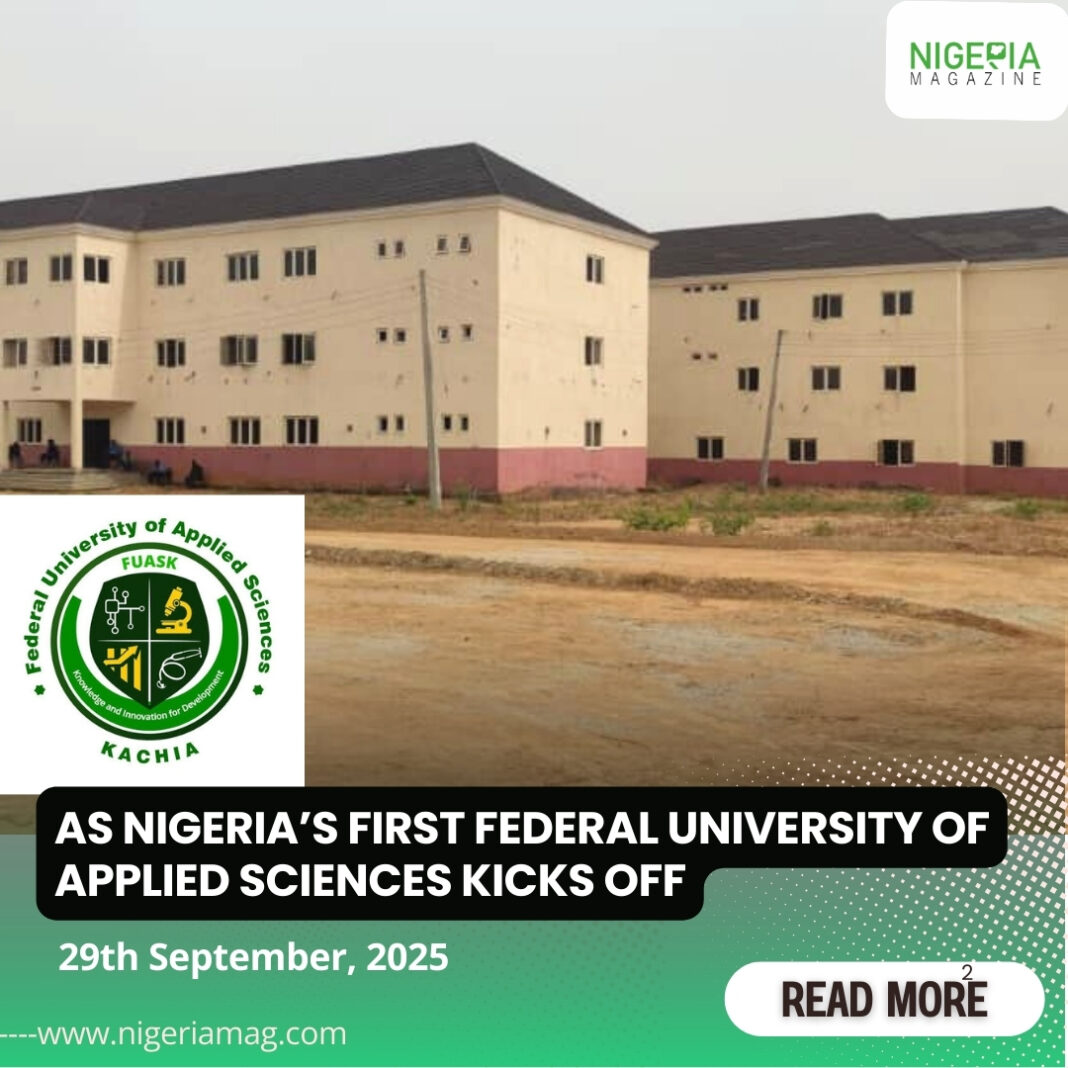When President Bola Ahmed Tinubu approved the conversion of Nok University, Kachia, into
the Federal University of Applied Sciences, Kachia (FUASK) in February 2025, it marked more than just a change of name. It represented a significant policy shift—one that puts skills-driven, practice-ready education at the heart of Nigeria’s tertiary system.
As someone who has followed Nigeria’s higher education sector closely, I see FUASK as more
than a new university. It is a strategic intervention—a deliberate attempt to align federal education policy with the realities of employability, innovation, and regional development.
Governance and Leadership
In March, the Federal Government inaugurated FUASK’s Governing Council and principal
officers. The appointments are telling. Bishop Matthew Hassan Kukah now serves as
Pro-Chancellor and Council Chair, while Professor William Barnabas Qurix has been named the pioneer Vice-Chancellor. With key administrative officers—Registrar, Bursar, Librarian—also in place, the university begins life on solid governance ground.
This mix of moral leadership and academic experience suggests a deliberate effort to build both credibility and capacity from day one.
Academic Focus and Applied Mandate
The National Universities Commission (NUC) has approved 18 undergraduate programmes for
FUASK, all within its applied sciences focus. Courses will cover medicine, engineering, ICT,
environmental sciences, and agriculture—disciplines designed to meet both national needs and global demand for technically competent graduates.
One of the most striking features is the conversion of the General Hospital in Kafanchan into FUASK’s teaching hospital. For a brand-new institution, this immediate access to a clinical
training facility is rare and potentially transformative.
Budget, Infrastructure, and Take-Off
FUASK has already been captured in the 2025 federal budget, with full academic activities
scheduled to begin in September 2025. Federal investment covers the remodelling of
classrooms, laboratories, workshops, and student hostels. This signals more than just take-off readiness—it shows intent to sustain FUASK as a flagship model for applied education.
Strategic Location and Regional Impact
Placing FUASK in Southern Kaduna is both symbolic and pragmatic. For decades, the region has demanded stronger federal presence. Beyond offering access to higher education, FUASK is expected to stimulate regional development—from local employment to infrastructure growth.
By training practice-ready graduates, the university is positioned to become a hub for innovation in medicine, technology, agriculture, and engineering, with ripple effects that could extend far beyond the campus.
Why FUASK Matters
For me, the establishment of FUASK is a recognition that Nigeria’s higher education system must evolve. Too often, our universities lean heavily on theory, producing graduates without market-relevant skills. FUASK is different. Its model is hands-on, industry-linked, and innovation-oriented.
If it succeeds, FUASK could well become the template for future reforms in Nigeria’s tertiary
sector. It is not just another federal university—it is an experiment in reimagining how we
prepare young Nigerians for a competitive world.
Key Facts at a Glance
Name: Federal University of Applied Sciences, Kachia (FUASK)
Former Name: Nok University
Location: Kachia, Southern Kaduna State
Status: Court-forfeited private institution taken over by FG
Take-off Date: September 2025 (2025/2026 session)
Leadership: Bishop Matthew Hassan Kukah (Pro-Chancellor), Prof. William Barnabas Qurix
(Vice-Chancellor)
Programmes Approved: 18 (NUC)
Teaching Hospital: Federal Medical Centre Kafanchan (converted from General Hospital)
Budget: Captured in the 2025 Federal Appropriation
Outlook
As the university prepares for its September 2025 debut, it carries with it both promise and
expectation. FUASK is a chance to prove that Nigerian higher education can be more practical, more relevant, and more impactful. Its story will not just be about a federal takeover in Southern Kaduna—it could well be about a turning point in how Nigeria educates for the future


